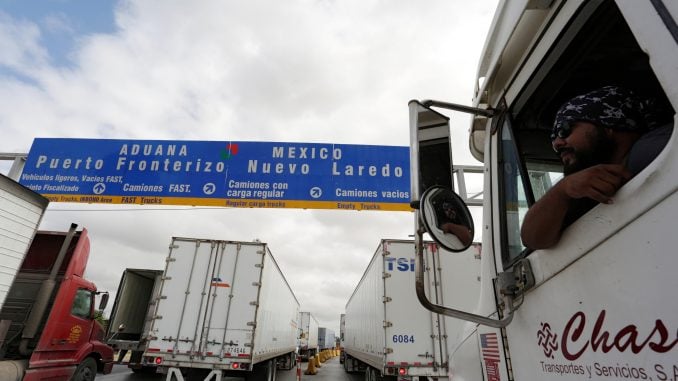
Mr. President: If this is already your plan, congratulations.
When Donald Trump, the candidate, kept saying: “BUH-Leeve me! Mexico will pay for the wall,” the media and Democrats scoffed and said there was no way to get Mexico to pay for border wall.
What could President Trump possibly have had in mind?
We could suspend all military and foreign aid to Mexico totaling over $320 million per year to pay for the wall. Losing $320 million a year in foreign and military assistance from America would amount to a .03 percent reduction in total national spending in Mexico.
That is not a killer in overall economic terms for Mexico. Their GDP is $1.046 trillion in US dollars, two-thirds the size of Canada’s GDP. Mexico is the 13th largest economy in the world today. Foreign aid used to go solely to devastated nations who needed it.
It would take 62.5 years, however, to pay for the border wall by diverting appropriations from Congress this way.
What if President Trump had in mind a much higher rate of interdiction of laundered “dirty” drug money that freely flows from purchases made in the U.S. back to sources in Mexico?
Call it “Reverse Money Laundering”: intercept “clean” drug money on its way back to Mexico and convert it into American general revenue to build the wall. It would be like creating a special tax on U.S. drug users and Mexican drug lords to pay for border security.
What could be better than that?
DEA officially collected $138 million in seized money in 2009. However, estimates of laundered money from illegal drug trade between the US and Mexico ranged as high as $38 billion or 275 times the amount of officially seized money.
We are leaving $37.8 billion in ill-gotten profits on the table that could be used to pay for the wall or repave a few highways if we could get our hands on it.
Mexico could pay for its own wall to keep their citizens in Mexico if they wanted. Roughly 10 percent of their population has been exported to America over the past 25 years. But they won’t.
Why?
One reason why the Mexican government doesn’t want an effective impermeable wall might be they know how important $38 billion in cash is to the Mexican economy and banking system. Cutting off that flow of cash could sink hundreds of small Mexican banks and cause a real dent in their annual GDP.
Money laundering is a huge network of small businesses in the southwest. Local authorities have little interest in enforcing federal statutes, and the FBI doesn’t have the resources to sift through millions of local bank transactions from mostly cash businesses such as convenience stores, restaurants, funeral homes, lawn services, and car retailers.
It’s a real war out there as well with lots of bloodshed and violence in support of drug trafficking. We have to treat it as war to defeat it.
A tidal wave of dirty money spread over a large landscape is barely noticeable. The point of vulnerability is when dirty money re-enters the banking system so drug lords can buy mansions, yachts, luxury cars, and more weapons with it.
By building a 21st century “virtual wall” with every conceivable technological instrument that can be used to detect cash flows at the border, intelligence gathering with a banking firewall can be used to significantly ratchet up the capture of significant percentage amounts of this laundered money.
That is how Mexico can be made to pay for the wall. Mexican drug lords losing billions in dirty profits from American drug users. The Mexican economy and banking system losing access to billions in laundered money every year.
Mexican interests will have then officially “paid for the wall.”
And if this isn’t your plan, Mr. President, well, then “you’re welcome!”


